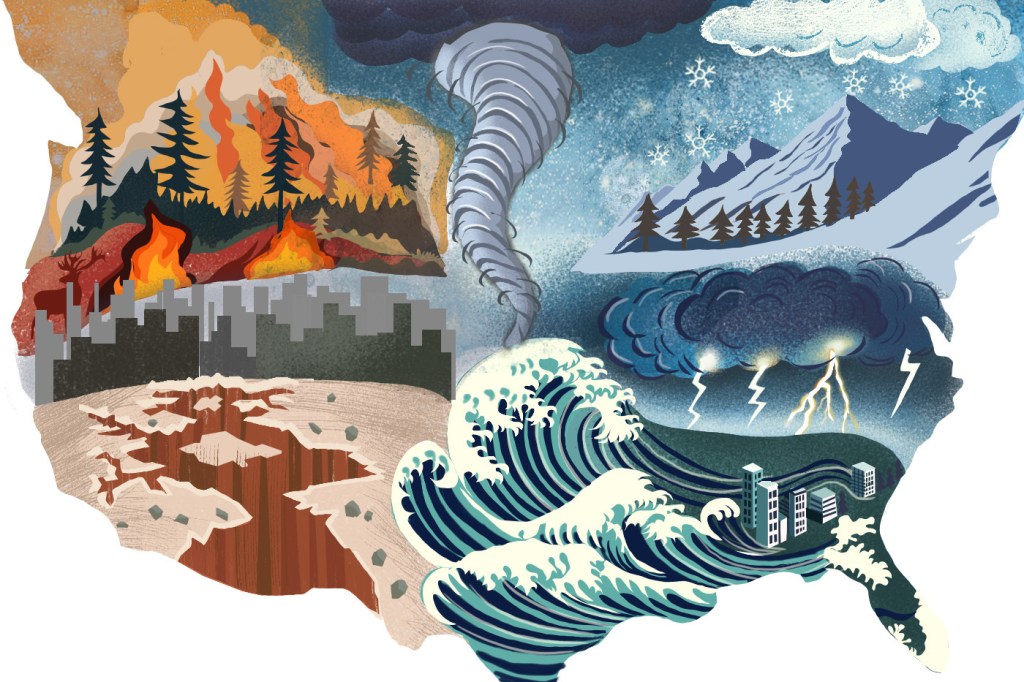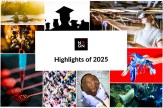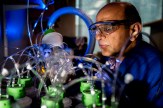Extreme weather affects us all. These Northeastern students are focused on finding local solutions

Drought, flooding, forest fires and heat waves — extreme weather affects us all. Exactly how, however, depends on where you live.
Northeastern University students across the global network are on the case. Teams recently participated in a brainstorming session focused on finding local solutions to increase climate resiliency.
“The Climate Resiliency Hack: Lightning Strikes!” convened more than 350 undergraduate and graduate students from seven Northeastern campuses — Vancouver, Seattle, Silicon Valley, Oakland, Toronto, Miami, and Portland, Maine.
The two-day event was a collaboration between Northeastern and Earth Hacks, a nonprofit that organizes fast-paced creative competitions where teams work on climate and environmental challenges.
Northeastern students were tasked with finding interdisciplinary solutions that empower vulnerable populations to prepare for, respond to, and recover from extreme weather.
“Participating in the Climate Resiliency Hackathon was a truly rewarding experience, allowing us to bridge the gap between classroom learning and real-world applications,” said Nicholas Toole, a member of a winning team from the Portland campus.
The team developed an app that allows users to literally see how a location could be impacted by sea-level rise, based on different climate-change projections and timelines.
“What struck me was how each team came up with a creative solution to a climate-change motivated problem that was tied to their locale,” said Dave Thurman, dean and CEO of Northeastern’s Seattle campus.
For example, a winning team on the Miami campus developed a dual-purpose platform providing real-time ocean health data with blockchain-enabled seafood tracking, enabling users to accurately source their seafood.
In Oakland, the focus was on wildfires, as the winning team — the EcoGuardians — developed a wildfire radio alert system to better alert high-risk populations who lack internet or cellular access.
“If you live in California, you understand the severity and devastation of wildfires — they’re not just natural disasters; they’re deeply personal experiences that affect communities, homes and lives,” said EcoGuardian’s Zadie Moon, who is pursuing a master’s degree in computer science.
Moon said the team wanted to focus on a solution that benefits the most vulnerable and impacted populations — those who often lack the resources or access to information needed to stay safe.
“Through this hackathon, I learned the power of designing with empathy and equity at the core,” Moon said. “It reinforced the importance of collaboration and leveraging technology to create solutions that are not only innovative but also inclusive and lifesaving.”
Editor’s Picks
Industry mentors and faculty supporting the students in the event say they were impressed with the solutions proposed.
“It was amazing to see hundreds of students from across North America come together to dive into climate resilience and justice,” said Sanjana Paul, executive director of Earth Hacks. “The energy, goodwill and enthusiasm for learning and creating multidisciplinary projects was fantastic.
“We’re thrilled to have partnered with Northeastern to help advance their commitment to equipping students with the knowledge and skills to become forward-thinking scientists, engineers, and leaders prepared to shape a sustainable future.”
Judges were likewise impressed.
“The innovative spirit and dedication you displayed was inspiring,” Bryan Taylor, managing director of Fuse Power Management, told students. “It was a privilege to witness your passion for tackling real-world climate challenges through AI and emerging cleantech solutions, interdisciplinary problem-solving, and collaborative network building.”
Jordan Bain, co-founder and CTO at Forge, a software platform for deep tech enterprise resource planning, concurred.
“I was inspired by students’ thoughtfulness and creativity when presenting their solutions to us, ranging from novel data analyses for urban planning to the distribution of cooling solutions during heat waves,” said Bain, a judge for the students on the Seattle campus. “It would be a blessing to see some of these ideas come to life within the community.”
Most importantly, the event made a lasting impression on students.
“We’re inspired to continue working in the climate space, using data to educate and empower communities to better understand and prepare for environmental challenges,” said Jack Kovarik from the Portland campus.











